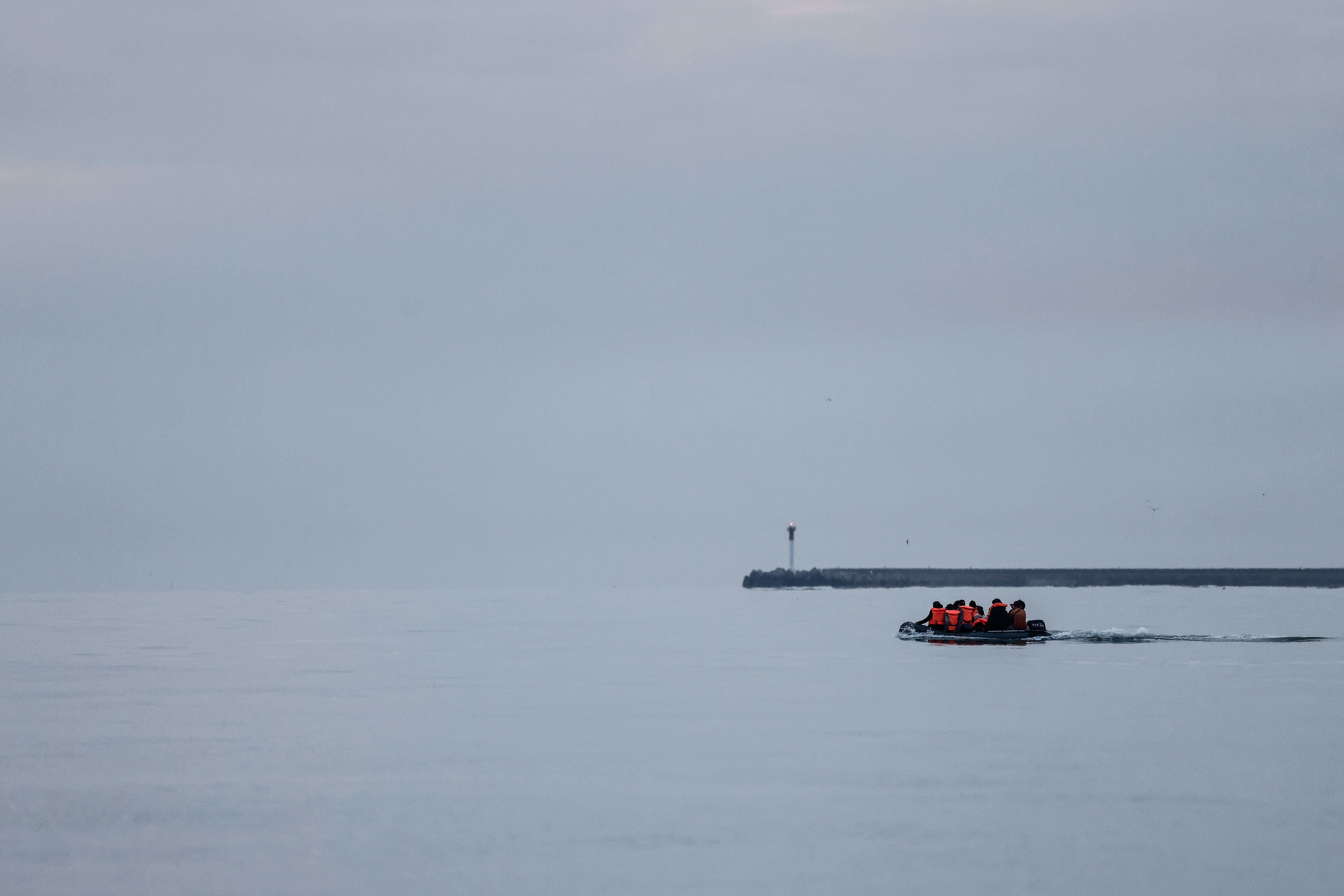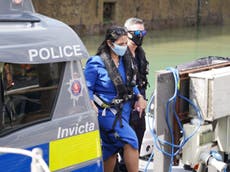Government ‘devoid of compassion and competence’ over English Channel crossings as numbers double
Exclusive: Netherlands and Sweden join list of EU countries saying they will not agree to take asylum seekers from UK

Your support helps us to tell the story
From reproductive rights to climate change to Big Tech, The Independent is on the ground when the story is developing. Whether it's investigating the financials of Elon Musk's pro-Trump PAC or producing our latest documentary, 'The A Word', which shines a light on the American women fighting for reproductive rights, we know how important it is to parse out the facts from the messaging.
At such a critical moment in US history, we need reporters on the ground. Your donation allows us to keep sending journalists to speak to both sides of the story.
The Independent is trusted by Americans across the entire political spectrum. And unlike many other quality news outlets, we choose not to lock Americans out of our reporting and analysis with paywalls. We believe quality journalism should be available to everyone, paid for by those who can afford it.
Your support makes all the difference.The number of migrants crossing the English Channel has doubled year on year despite Priti Patel’s vow to make the route “unviable”, The Independent can reveal.
More than 3,000 men, women and children have made the trip in small boats since January, up on around 1,400 during the same period in 2020, despite ministers paying millions of pounds to increase security along the French coast.
Charities say asylum seekers have no choice but to attempt dangerous boat journeys because of a lack of legal alternatives and the drop in air, lorry and ferry traffic during coronavirus.
Labour has accused the government of lacking both “compassion and competence”, as plans to return migrants to the “safe country from which they embarked” stall.
The Independent has discovered that since 1 January, when new rules came into effect between the UK and the EU, no asylum seekers have been deported to EU countries they passed through on their way to the UK.
The government has said repeatedly that it will negotiate bilateral agreements to replace a Europe-wide mechanism that the UK left during the Brexit process, but several EU nations have said they have no intention of striking such deals.
Charities in Calais say numbers crossing the Channel will not fall unless migrants currently living in “unspeakable” conditions are provided with safe and legal alternatives.
Nick Thomas-Symonds, the shadow home secretary, told The Independent: “This dire situation exposes the reality behind the rhetoric from the government: a refusal to reopen safe routes or keep to their promises of helping unaccompanied children stranded overseas. Criminal gangs are continuing to exploit desperate people.
“Now it seems the government will not even manage to deliver the deals needed to progress with their immigration plans. This Conservative government is devoid of compassion and competence.”
The home secretary vowed to make Channel crossings “unviable” in August, but her pledge was followed by record numbers of arrivals, which have continued.
On 1 January, the UK dropped out of the Dublin regulation, which allowed the transfer of asylum seekers back to countries they had previously passed through and provided a legal route for reuniting separated family members.
On the same date, controversial changes to immigration rules gave the Home Office greater scope to declare asylum claims from people who have passed through safe third countries inadmissible.
The government’s New Plan for Immigration, unveiled last month, said: “Contingent on securing returns agreements, we will seek to rapidly return inadmissible asylum seekers to the safe country of most recent embarkation.”
However, no returns agreements have yet been secured with EU countries, and nations including France, Belgium, Germany and Sweden have indicated that they will not join them.
A spokesperson for the European Commission said the Brexit deal “does not include provisions on asylum and return”.
The body considers asylum to be within its remit, and member states cannot enter bilateral negotiations on anything beyond “administrative practical arrangements” without formal permission.
A spokesperson from the Netherlands ministry of justice and security said: “We haven’t received a request from the UK to negotiate a bilateral return agreement. We prefer to conclude such agreements in an EU context.”
A representative of the Swedish migration minister said: “We don’t have such an agreement, neither are we planning to enter one.”
Sources at the Spanish ministry of foreign affairs told The Independent they had “no ongoing agreement” with Britain on the transfer of asylum seekers.
The Greek ministry of migration said that some form of replacement for the Dublin regulation was “necessary”, but did not commit to taking asylum seekers from the UK.
France, Belgium and Germany have previously indicated to The Independent that they do not intend to make bilateral deals with Britain.
The vast majority of Channel crossings are launched from France, where thousands of migrants remain living in informal encampments on the northern coast.
Clare Moseley, founder of charity Care4Calais, said conditions had become “unspeakable” amid unrelenting police raids and a ban on distributing food to migrants.
“They are ceaselessly moved on, and often violently woken up in the early hours of the morning so that sleep is disrupted and exhaustion is common,” she told The Independent. “It is entirely understandable that they would take great risks to escape.”
Ms Moseley said that for those already in France, boat crossings are “one of the very few ways that people can get to the UK to claim asylum”.
“For all practical purposes there is no legal way to travel, so the only choice is whether you risk your life in a small boat or hidden in a lorry,” she added.
A Foreign Affairs Committee report warned in 2019 that focusing on closing borders would “drive migrants to take more dangerous routes, and push them into the hands of criminal groups”.
“In the absence of robust and accessible legal routes for seeking asylum in the UK, those with a claim are left with little choice but to make dangerous journeys by land and sea,” it added.
The number of asylum applications to the UK fell from 35,737 in 2019 to 29,456 in 2020, as the result of a dramatic drop in arrivals by air during the coronavirus pandemic.
Officials believe the rise in the use of small boats was partly caused by the drop in cross-Channel lorry traffic.
Chris Philp, the minister for immigration compliance, insisted that the government’s immigration plans would “speed up the removal of failed asylum seekers”.
“All countries have a moral responsibility to tackle the issue of illegal migration,” he added. “We expect our international partners to engage with us on this, building on our good current cooperation, and continue to highlight the importance of having effective returns agreements to stop people making perilous crossings.
“Individuals should claim asylum in the first safe country they reached – rather than making dangerous journeys to the UK.”



Join our commenting forum
Join thought-provoking conversations, follow other Independent readers and see their replies
Comments